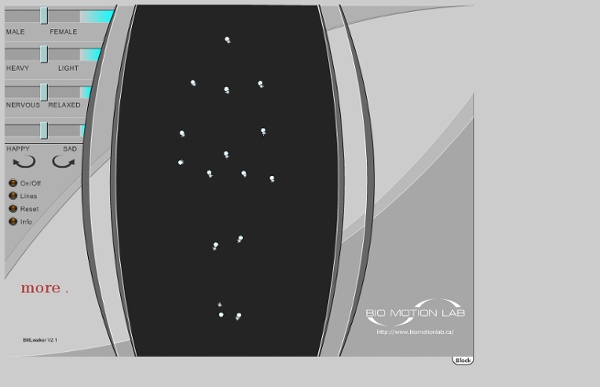



Audiocite.net - Livres audio en téléchargement gratuit et libre Build-A-Body Overview Learn about the body's systems with this drag and drop game. Choose organs from the organ tray, and place them in their correct position within the body to create organ systems. Build-A-Body is a drag and drop game where players are tasked with assembling an organ system from a set of organs. Players may then attempt case studies where a functional problem with a system must be linked to the organ affected. How to play Build-a-Body Choose organs from the organ tray, drag and drop them in their correct position within the body to build each system. Teaching with Build-a-Body Build-a-body is an awesome tool to introduce and teach concepts of human anatomy and human physiology. Early Childhood Education with Build-a-Body Where does my food go?
The flea's knees (and every other part of its anatomy): Stunning close-ups of see-through water insects By Daniel Miller Published: 13:57 GMT, 4 May 2013 | Updated: 15:52 GMT, 4 May 2013 These stunning images may look like extras from a sci-fi movie - but they are actually close up images of water fleas and other tiny creatures. Photographer and marine biologist Daniel Stoupin takes incredibly close-up photographs of the miniscule marine creatures - so they become almost completely transparent. His photos show everything from sea plants to water fleas and mosquitoes, all of which are photographed so closely that they are barely recognisable. A water flea known as a Polyphemus seen in extreme close-up in one of photographer Daniel Stoupin's incredible images of the tiny marine creatures Biting back: A close-up of mosquito's head appears as some alien creature from a sci-fi movie Creepy customer: A close up of a mosquito showing its hairy body and swollen thorax 'I have always loved animals, especially invertebrates, especially smaller ones. A close-up of a flea.
80 Useful PSD Templates For Web Designers - Noupe Design Blog Aug 05 2010 Reinventing the wheel is rarely a good idea, and this is especially true when it comes to creative activities such as design. The less time you spend on tedious tasks, the more time you have for expressing your ideas and being original. While most of these files can be used for most of your projects, as with any freebie, make sure you read the description about the usage or contact the author if it’s not clear. Icons, buttons & badges Glass Video Playback Buttons via Birofunk Windows buttons PSD via Vicing PSDFox via Vathanx Free Button Pack via Celerayted Aero Avatar and SIG via FastNFurious Win7 Taskbar Buttons .PSD via Giannisgx89 Customizable Folders via Bobbyperux Twitter Icons .PSD via JuliusX Customizable Pins Buttons via Annatreter Buttons PSD via El3ment4l Badge-it Yourself via Manicho Stiker PSD via TLMedia Nice ‘n’ Simple Subscribe Badges via PhotoshopStar 6 .PSD Icons Vol. 1 via Wearwolfaa 6 .PSD Icons Vol. 3 via Wearwolfaa 6 .PSD Icons Vol. 4 via Wearwolfaa Simple objects
Mental State Called Flow A number of sources, most recently ProgrammingOutsideTheCube and the RingerTape page, say that many folk find it takes time to get into a state where work flows. Do you plan to get into flow, does it come upon you more as a kind of inspiration, or is it not necessary for you? Do you use tactics to improve your team's ability to flow? Which particular events disrupt flow the most, and how do you solve them? Interesting but difficult to summarize: The mental state that psychologists call "flow", and its impact on your project, are well described in chapter 10 ("brain time versus body time") of PeopleWare. About 20-30 minutes of Zen meditation once or twice per day should be a great help. I find problems draw me into them. Flow to me is evidenced in looking up ten minutes later to find that hours have elapsed. MicroSoft has a tack on this sort of thing. I use to get into flow around 9pm, but nowadays I just get sleepy... Try juggling.
The National Library of Medicine's Visible Human Project Overview The Visible Human Project® is an outgrowth of the NLM's 1986 Long-Range Plan. It is the creation of complete, anatomically detailed, three-dimensional representations of the normal male and female human bodies. The long-term goal of the Visible Human Project® is to produce a system of knowledge structures that will transparently link visual knowledge forms to symbolic knowledge formats such as the names of body parts. The National Library of Medicine thanks the men and the women who will their body to science, thereby enabling medical research and development. Further Information
Engineering and Math | Things for Geeks Please enable JavaScript to view the <a href=" powered by Disqus.</a> Engineering and Math Follow Us Views: 324,010 Engineering and Math 3 Online the INTERESTING thoughts of EDWARD MONKTON™ The WWW Virtual Library
Anatomy | Anatomy Atlas | Human Anatomy | Cross Sectional Anatomy | Anatomy Education | Anatomy Library - Anatomy Atlases